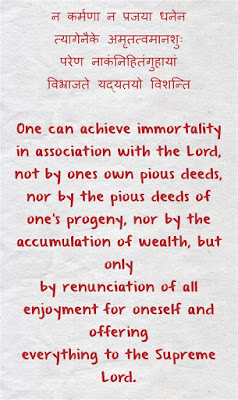I
make an honest attempt to always keep my praise response mechanism at a default
setting of modest gratitude. However, on quite a few occasions in the past month,
this setting changed spontaneously to genuine surprise and even unalloyed joy.
The
first occasion was when a friend asked why there were no new posts on my
Facebook page called Write Every Day that I’d started about a month ago.
Although I knew he followed that page, often liking or commenting on stuff I
wrote, it did come as a pleasant surprise to realize that he had noticed the
writing had stopped.
The
next occasion was at a family get-together when I mentioned in passing about
having signed up for Sanskrit classes. A dear cousin whom I hadn’t met in
person since quite a few months quipped, “I know.” In response to my surprised
query of how he knows, pat came the reply, “I read it on your blog.” Which
helped me realize that he follows my writings although he has never commented
or indicated in any other way that he reads what I write.
Just
a few days ago, another cousin popped up on WhatsApp with a sudden query, “Why
no blog posts of late?”
And
just a few minutes ago, an old student sent me a message saying, “When are you writing new blog Ma'am?
I'm eagerly waiting to read.”
All these
experiences hold a surreal meaning for me. Because
many times when I send people links to my blog posts asking them to read,
there's a tiny voice inside that keeps popping up now and then, "What
makes you so sure they'll want to? Are you by chance intruding on their time
and space by urging them to read you?"
Whenever
I write something, it’s mostly because I’m moved by a particular topic. In that
sense, it serves as a chronicle of my views and an outlet for my thoughts. Sometimes, the writing is to try and convey a
particular viewpoint that I think will be useful to my readers.
To
myself, rather than a “writer”, I feel like just someone who
- spends a lot of time thinking of things that most others don’t notice or don’t break their heads over
- is persistent enough to work at putting those thoughts down in writing, and
- has the nerve to share these thoughts with the world.
Which
is why it always surprises me when I get feedback saying someone is touched by
what I write. And it astonishes and gratifies me that people actually wait to
read what I have to say.
Putting
together all those surreal experiences I mentioned earlier, I’m left once more
humbled and grateful and aware of a greater sense of responsibility. To write
more often in the vein I do. To try and keep my voice as sane and free of petty
considerations as possible. To try and become a really great writer.


